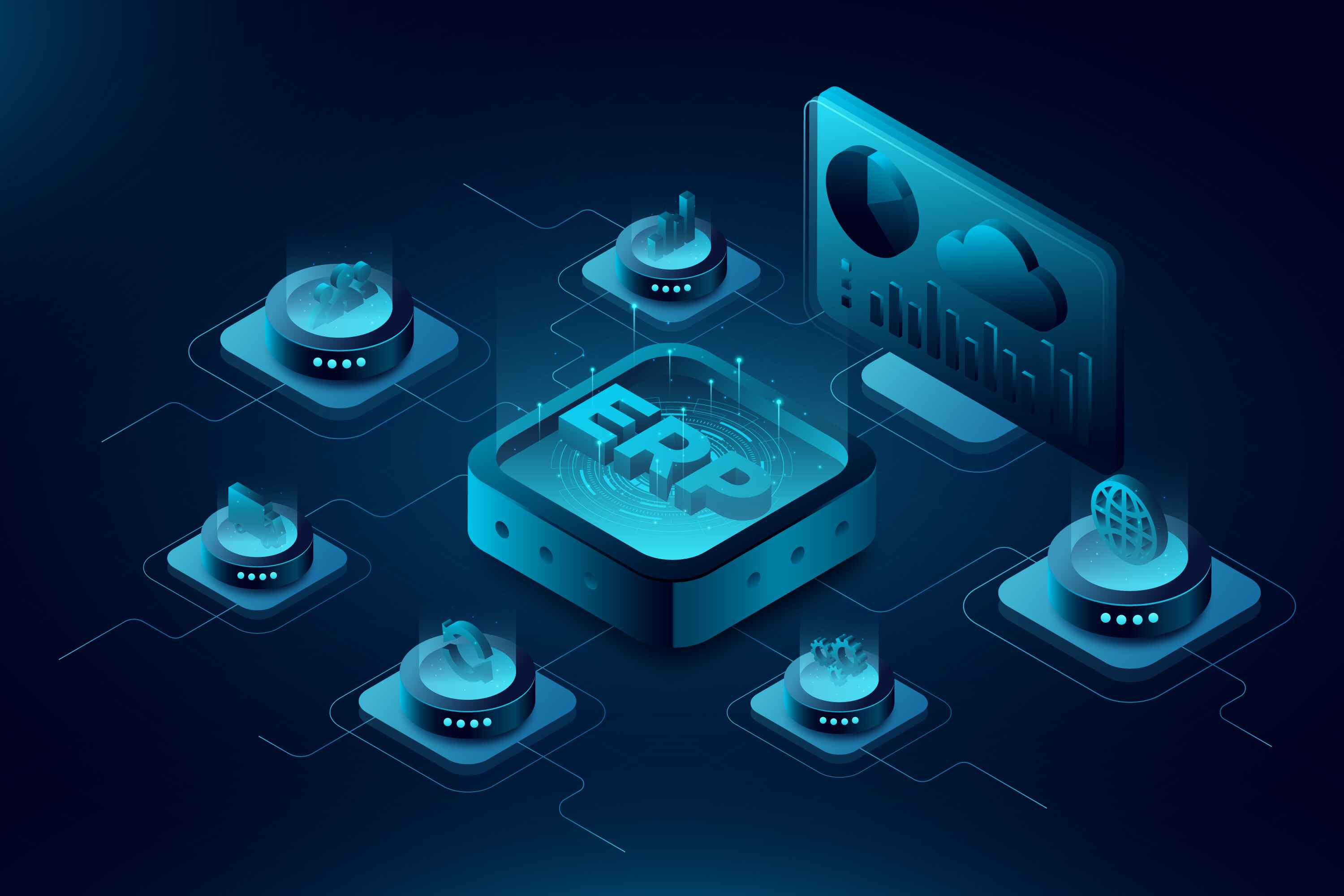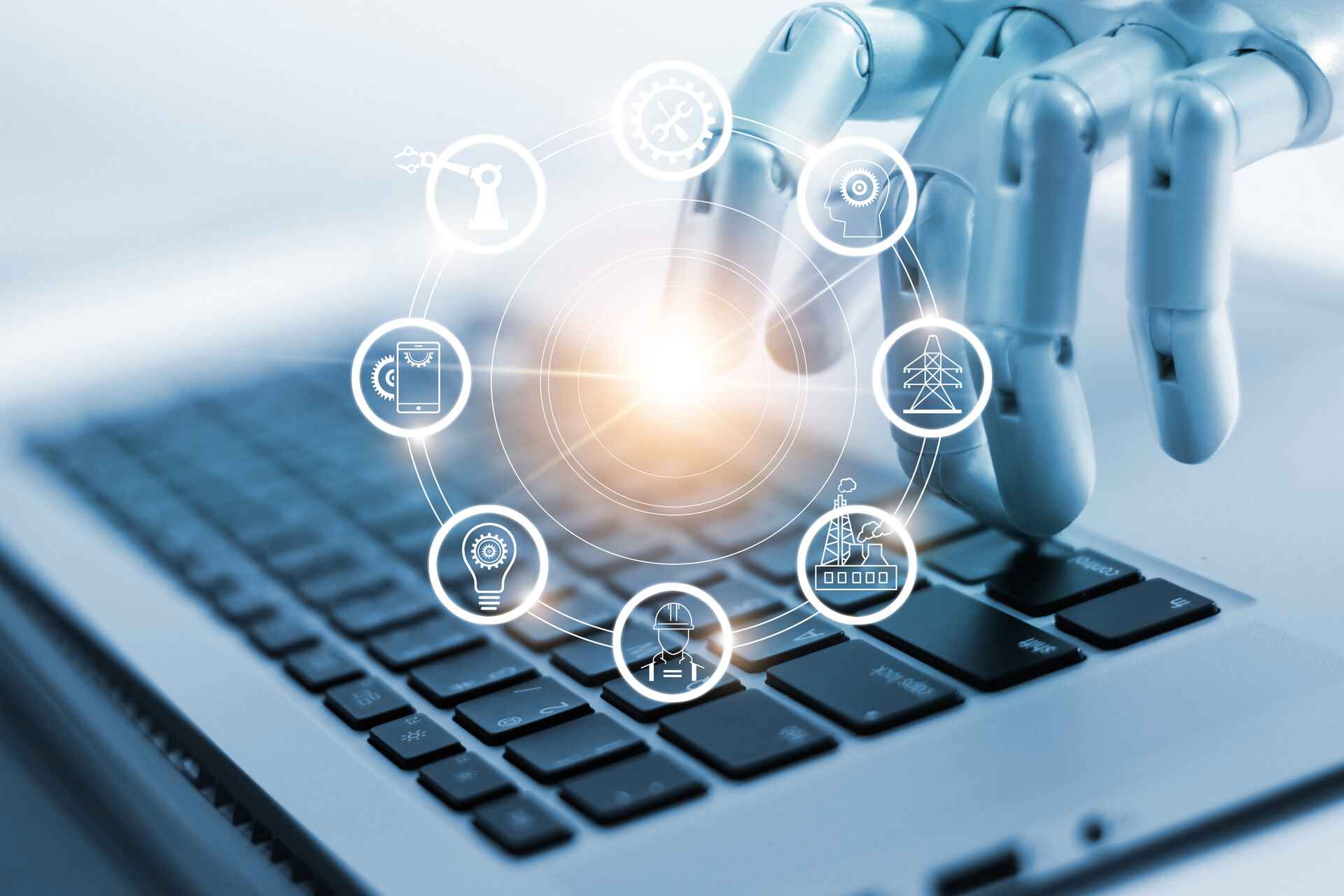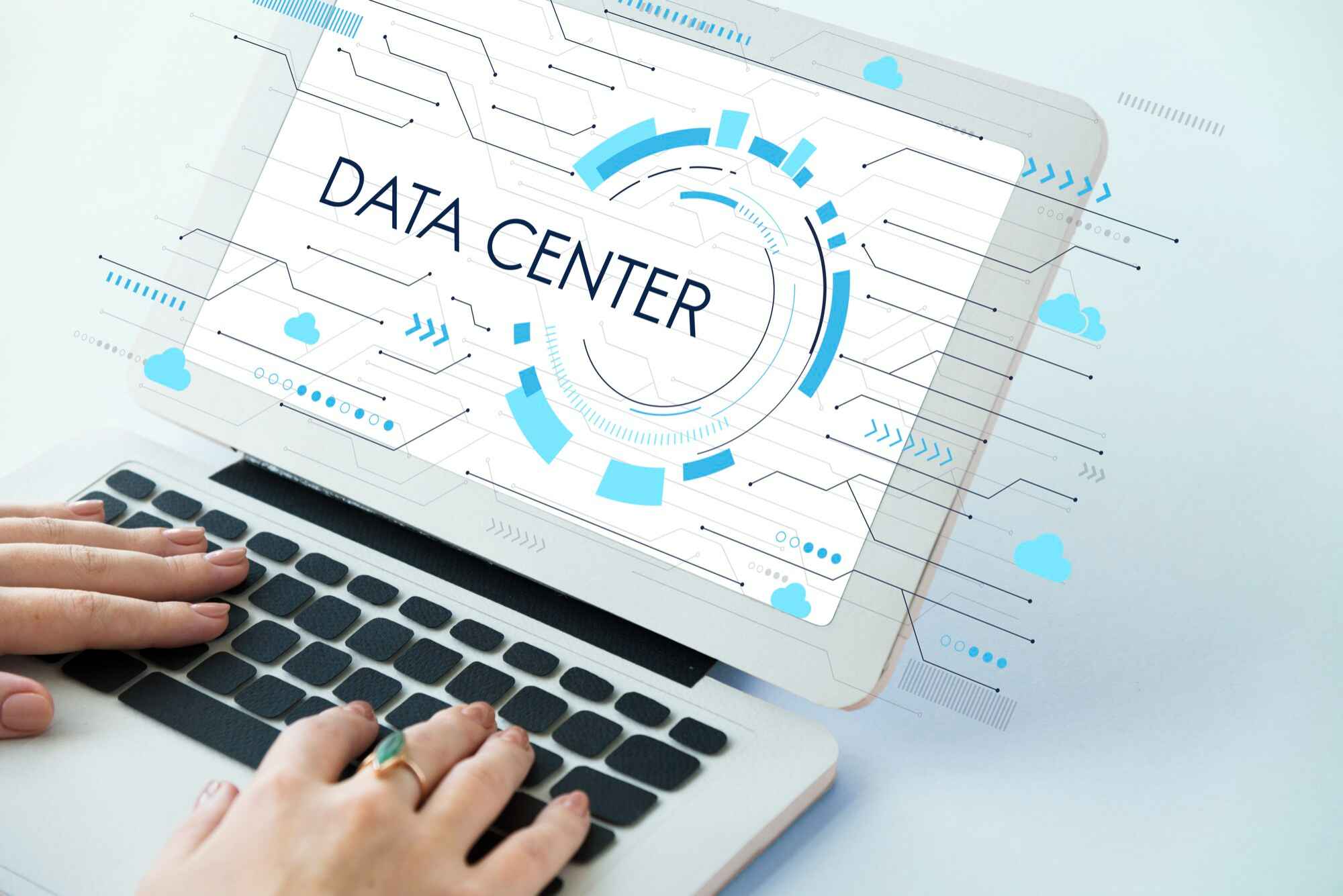In today’s fast-paced business world, keeping operations smooth is not an easy task. This is where ERP software steps in, offering a powerful tool to streamline daily tasks, manage data, and improve team coordination. From automating workflows to real-time tracking, ERP transforms how you handle your business.
With everything from inventory control to project timelines in one system, ERP software helps your team work smarter, not harder. Whether you’re a small business owner or managing a multi-national company, understanding ERP can bring your operations to the next level.
1. Introduction to ERP for Operational Efficiency

ERP software has become essential for businesses looking to boost efficiency and reduce operational headaches. With the right ERP solution, managing everything from inventory to human resources can be seamless. Here’s why ERP is the backbone of efficient business operations.
What is ERP Software?
ERP software (Enterprise Resource Planning), integrates a company’s core processes into one system. This means inventory, HR, finance, and more are all connected. Such integration lets you access information quickly, eliminating the need to jump between various software and spreadsheets, which saves time and reduces human error.
Why ERP Matters for SMEs in Malaysia
Small and medium enterprises (SMEs) in Malaysia often face challenges in maintaining consistency across their operations. An ERP solution simplifies things by centralising all processes, making it easier to streamline tasks and standardise data. This is particularly useful when growing a business in competitive markets like Malaysia and Singapore, where efficiency is key.
Cost Savings in the Long Run
Although ERP software can be an investment upfront, it saves businesses money in the long run. By automating repetitive tasks, minimising errors, and reducing delays, ERP ensures smoother workflows. For example, with integrated data, you can avoid duplicate entries, saving time and avoiding costly mistakes.
Improved Decision-Making
With real-time data access, ERP helps managers and business owners make informed decisions. Instead of waiting for daily or weekly reports, decision-makers can access insights instantly, which is especially useful during busy periods like Ramadan sales or year end sales campaigns. This leads to proactive management, where you can spot trends early and respond faster.
Scalability for Growing Businesses
ERP solutions are scalable, meaning they grow with your business. Whether you’re a small café in KL or a retail chain expanding across Peninsular and East Malaysia, ERP can adapt to your evolving needs. As you expand, ERP keeps processes consistent, making growth manageable.
2. Automating Routine Tasks in ERP

One of the standout benefits of ERP software is task automation. Automating routine tasks, from inventory checks to payroll, reduces manual effort and streamlines workflows. This frees up time for your team to focus on higher-value work.
Automating Inventory Updates
ERP software helps keep stock records up-to-date by automating stock levels and notifications. With real-time updates, you’ll know when to restock or halt orders, ensuring your business doesn’t oversell or miss out on opportunities. This is especially handy for busy times like Hari Raya or Mothers day.
Payroll and HR Automation
Handling payroll manually can be time-consuming and error-prone, especially for companies with multiple employees. ERP software simplifies this process by automating payroll calculations and even tax deductions, ensuring everyone gets paid accurately and on time. Additionally, HR tasks such as employee leave tracking and performance reviews are also automated.
Streamlining Order Processing
With an ERP system, order processing becomes easier. Orders are automatically updated, with the ERP handling tasks from order confirmation to invoicing and inventory adjustments. By removing manual steps, the chance of error is minimised, and the process is completed faster—keeping customers happier and reducing delays.
Reducing Admin Work for Malaysian SMEs
For many Malaysian SMEs, especially those with smaller teams, admin work can quickly pile up. ERP software automates several admin tasks, from generating reports to filing essential records. This allows your team to focus on core tasks, which is crucial when you’re aiming to scale up and capture more of the market.
Real-World Example: Retail Shops
Consider retail stores in Malaysia that rely on sales at different locations. An ERP system can automate store sales reports, adjust inventory, and even plan for seasonal demands like Deepavali. This reduces manual tracking and helps business owners make data-driven decisions on restocking and promotions.
3. Centralised Data Management in ERP Software

Another key feature of ERP software is centralised data management, where all essential business data is stored in one location. This makes accessing and analysing data easy for everyone in the company, resulting in better-informed decisions.
Unified Data for Better Insights
When all your data is in one place, insights come easier and faster. No need to go through separate reports for sales, inventory, or HR. ERP software brings everything together, creating a unified view. This helps businesses avoid data discrepancies, making analytics more reliable and quick.
Secure Data Storage
A good ERP system provides robust security features, ensuring your data is protected against unauthorised access and breaches. For businesses handling sensitive information, like customer details or financial records, this centralisation with security is essential. ERP software in Malaysia has become especially crucial as more businesses comply with data protection regulations.
Accessibility Across Departments
ERP software allows seamless access to data across departments, promoting a collaborative work environment. For example, your sales team can access inventory levels, allowing them to provide accurate product information to customers. This cross-departmental accessibility makes daily operations smoother.
Data-Driven Marketing
With ERP data, marketing teams can analyse purchasing trends and customer preferences. Zoomo Tech’s Custom ERP solutions, for example, can integrate with your sales data, helping marketing efforts become more targeted. When your marketing strategy aligns with real-time data, you reach your audience effectively and enhance engagement.
4. Real-Time Tracking and Monitoring

Another practical benefits of ERP software is real-time tracking, helping businesses monitor operations as they happen. With immediate visibility, managers can make timely adjustments to improve efficiency and meet goals.
Keeping an Eye on Inventory
ERP software with real-time tracking allows businesses to monitor inventory levels and respond promptly. This feature is beneficial in fast-moving industries like F&B and retail, where stock levels can fluctuate rapidly. By tracking items in real time, you avoid overstocking or stockouts.
Tracking Expiry Dates and Shelf Life
Some industries, like F&B, need to track expiration dates. ERP software alerts inventory managers before items reach their expiry, reducing waste and ensuring customers get fresh products. This feature helps food service and healthcare companies keep their inventory safe and up to date.
Managing Multiple Warehouses
ERP solutions also make it easy to oversee inventory across multiple locations. Businesses with warehouses in Kuala Lumpur and Penang, for example, can track stock at both sites from a central ERP system, improving distribution efficiency and reducing inter-location transfers.
Monitoring Employee Productivity
Real-time tracking also extends to workforce productivity. With ERP software, managers can observe project progress and employee performance, identifying any roadblocks early. This promotes accountability and helps teams stay on track, especially in high-demand periods like Chinese New Year sales.

Supply Chain Visibility
With ERP software, the entire supply chain becomes more transparent. Businesses can monitor shipments, manage supplier relationships, and resolve bottlenecks faster. This visibility is valuable in logistics-heavy sectors, ensuring a smooth flow from supplier to customer, which is especially useful in regions like Sabah and Sarawak where logistics can impact timelines.
Enhancing Customer Service
Customer service benefits from real-time tracking as well. For example, ERP software enables customer service representatives to access real-time information on stock availability, order status, and shipping details. This reduces the time it takes to respond to customer inquiries, making interactions smoother and more efficient.
Tracking Marketing Campaigns
Real-time tracking can help monitor ongoing marketing campaigns. If your ERP system integrates with your marketing tools, you can see how campaigns impact sales and adjust them accordingly. This aligns marketing with real-time business data, a strategy we at Zoomo Tech encourage to maximise campaign effectiveness without relying on assumptions.
5. Enhanced Collaboration Across Departments

ERP software significantly enhances collaboration across various departments by allowing them to share and access data from a single system. This unified approach reduces the barriers that often block communication in many organisations, helping teams work seamlessly.
Data Consistency Across Departments
When all departments share the same ERP system, data remains consistent across the board. For instance, if HR updates an employee’s details, payroll automatically accesses the latest data. Consistency like this builds trust in the system, as team members rely on accurate data for their daily tasks.
Streamlined Communication
With ERP software, team members from different departments can access shared data instantly. For example, your finance team can coordinate with sales, accessing real-time sales data to inform budget planning. This integrated setup ensures everyone is on the same page, fostering better cross-departmental communication.
Transparent Project Management
ERP systems often come with project management features, allowing different departments to monitor project progress. Whether it’s a new product launch or seasonal marketing campaign, every team involved has visibility over tasks and timelines, making it easier to collaborate effectively and avoid misunderstandings.
Efficient Resource Allocation
With collaboration across departments, ERP software allows better allocation of resources. For instance, if the marketing team knows about an upcoming sales campaign, they can allocate enough resources beforehand, preventing last-minute rushes. This proactive planning benefits everyone involved and reduces operational strain.
6. Resource Planning Made Easy with ERP Software

ERP software simplifies resource planning, helping businesses allocate people, materials, and budget effectively. By managing resources more efficiently, companies avoid waste and ensure they’re prepared to meet demand, enhancing productivity.
Real-Time Resource Allocation
ERP systems allow for dynamic resource allocation based on current data. For instance, your manufacturing team can see in real-time which materials are running low and reorder before they run out. This way, your resources are always aligned with actual demand, reducing waste and downtime.
Staffing Needs and Allocation
With ERP software, managers can forecast staffing needs based on project timelines and seasonal demand. This feature helps companies in Malaysia’s like those in retail sector optimise employee shifts during peak periods, such as Ramadan or Chinese New Year sales. Resource planning at this level promotes smoother operations and better customer experiences.
Financial Resource Optimisation
ERP software offers insights into financial planning by tracking expenses and allocating funds efficiently. Budgeting becomes a proactive process, allowing you to identify potential overspend or cost-saving areas before they impact the bottom line. For businesses in fast-growing markets, this level of control is invaluable.
Aligning Marketing with Resource Planning
ERP software can sync marketing and resource planning to optimise campaigns. For example, if there’s a new promotion, ERP data helps predict stock requirements to meet demand without overcommitting resources. By aligning marketing efforts with available resources, businesses avoid overextending and deliver better results.
7. Reducing Errors with Integrated Systems

Integrating all functions into a single ERP system greatly reduces the likelihood of errors that often arise from manual data entry or handling disparate systems. This streamlined approach ensures accuracy and helps businesses avoid costly mistakes.
Automated Data Entry
ERP systems automate data entry, eliminating manual entry errors. For example, sales data can automatically update inventory records, reducing discrepancies in stock levels. This automation not only saves time but also ensures accuracy, crucial for businesses handling large amounts of data.
Real-Time Validation
ERP systems validate data in real time, preventing inaccurate or incomplete entries from being processed. Whether it’s a customer order or financial transaction, real-time validation helps ensure that only accurate data is logged, improving business reliability and trustworthiness.
Streamlined Compliance
By reducing errors, ERP systems also make it easier to comply with industry regulations. Accurate record-keeping is essential for audits, especially in regulated industries like finance and healthcare. ERP software aids compliance by minimising manual errors and generating reports that meet regulatory standards.
8. Improving Project Timelines with ERP Software

ERP software brings a structured approach to project management, helping businesses set realistic timelines and track progress. By having a clear view of tasks, resources, and deadlines, companies can achieve smoother workflows and timely project completions.
Scheduling and Timeline Management
ERP systems enable project managers to create detailed schedules, setting start and end dates for each task. This scheduling capability keeps team members informed, reducing delays caused by miscommunication.
Tracking Task Progress
Project tasks are easy to monitor with ERP software, which shows the real-time status of every activity. Managers can spot bottlenecks and reassign resources if needed, ensuring timely project delivery. This is especially useful for businesses with complex projects involving multiple departments.
Resource Allocation for Projects
As discussed earlier on, an ERP systems help allocate resources effectively, allowing managers to assign tasks based on team availability and skill set. This streamlined allocation prevents overloading certain employees and ensures a balanced workload across the team, leading to a more productive work environment.
Budget Monitoring and Control
Project budgets can be tracked in ERP software, preventing overspending. By comparing planned and actual expenses, managers can make data-driven adjustments. This budgeting feature is a major benefit for small Malaysian businesses, which often need to monitor expenses closely to stay profitable.
Conclusion
ERP software can transform your business operations by streamlining tasks, enhancing collaboration, and reducing errors. From managing inventory and tracking resources to improving project timelines, each feature of ERP software brings efficiency and clarity across departments, helping you make data-driven decisions and scale with ease.
At Zoomo Tech, we’re here to help you unlock the full potential of ERP software. Whether you need better data management or real-time monitoring, our solutions are designed to meet your unique business needs. Contact us today! Let us partner with you to build your efficient and future-ready ERP software.




